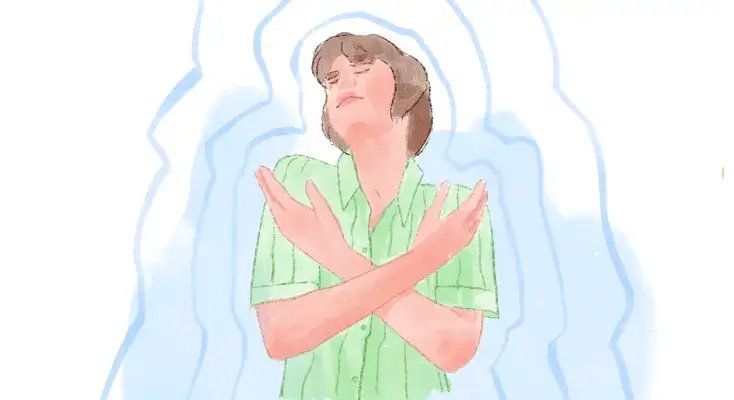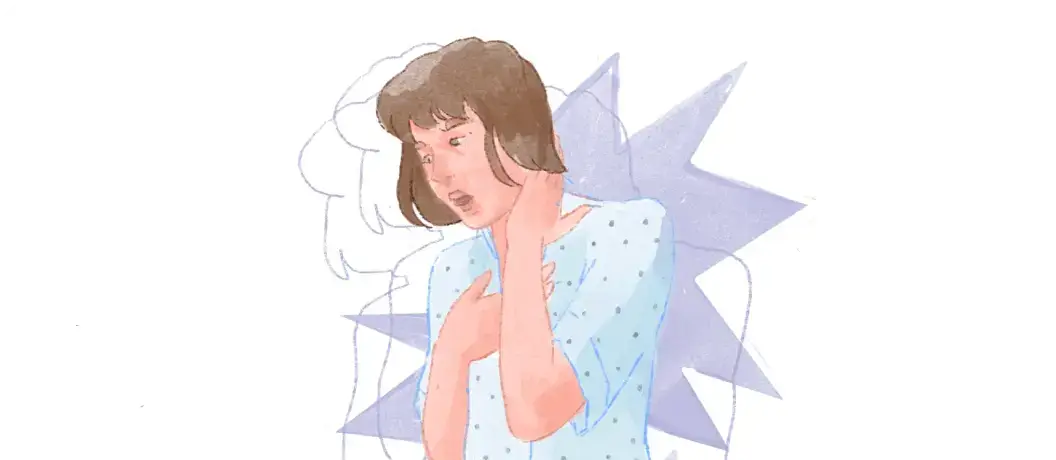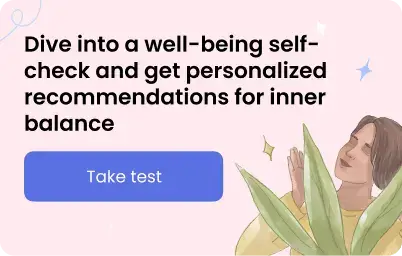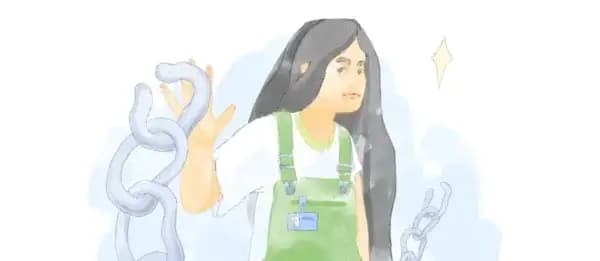There are times when you feel like you are gasping for air and your chest is tight. Once you get there, you do not know if you are having a medical emergency or just anxiety paying you a visit.
Do you also find it hard to breathe when you are stressed out? If you get stuck on how to tell if shortness of breath is from anxiety, do not worry — this guide will help you.
Quick answers:
- Anxiety shortness of breath often feels like gasping for air with a tight chest which happens after your thoughts or situation triggers anxiety.
- Medical conditions like asthma, allergies, heart problems, or even smoking can cause shortness of breath too.
- Anxiety triggers a “fight or flight” response, causing rapid and shallow breathing, which leads to hyperventilation. Worrying about not having enough air can lead to even more breathlessness.
- This cycle can escalate into an acute anxiety attack.
How to tell if shortness of breath is from anxiety? Key symptoms of anxiety-induced shortness of breath
Here are some indicators that your shortness of breath might be due to anxiety:
1. Check symptoms timing
Anxiety-induced shortness of breath often takes place suddenly and is typically linked to specific stressors or situations that trigger your anxiety. Such as public speaking or worrying about a health issue. Or being faced with your phobias like height or snakes.
2. Look at your breathing patterns
- A feeling of anxiety tightness in the chest, as if someone’s giving you an unexpected bear hug.
- A rapid, shallow breathing, known as hyperventilation
- You may also feel like you can’t get a full, satisfying breath.
3. Check additional symptoms in your body
- Dizziness or lightheadedness makes you wish for a moment to sit down and regain your balance.
- Tension and muscle tightness that make you feel like a human pretzel.
- Heartbeat that feels thicker and faster than Usain Bolt’s run (heart palpitations).
- A stomach that feels like it is on a roller coaster that never stops (anxiety nausea).
- You are sweating like you just walked a long distance, even though all you did was walk up some stairs.
4. See how long these symptoms last
Symptoms of anxiety typically ebb and flow. They might peak during high-stress moments and subside when you start to relax or use coping mechanisms, such as deep breathing exercises.
How to tell if shortness of breath is from anxiety or something else?
Before you start diagnosing yourself with rare lung diseases or googling “how to survive without oxygen,” let’s take a moment to distinguish anxiety-related shortness of breath from other medical counterparts.
Sure, medical conditions like asthma, allergies, heart problems, or even smoking can cause shortness of breath too.
Let’s see the difference:
- Asthma or respiratory issues or dispnea: These conditions might produce consistent shortness of breath, wheezing, or coughing, especially during physical exertion or exposure to allergens.
- Cardiac problems: So you might ask, “How to tell if shortness of breath is from anxiety or maybe heart problems?” If shortness of breath is accompanied by chest pain or swelling in the legs, or you have a history of heart disease, get medical care right away.
- Panic Attacks: These can mimic anxiety but are more intense and sudden, with symptoms peaking within minutes. Other signs of panic attacks include chest pain, a feeling of choking, and a sense of loss of control.
Understanding anxiety-related shortness of breath
Picture this: you’re going about your day, minding your own business, then at once realize how many tasks you have to do. And suddenly, as if out of nowhere, you feel like you’re running a marathon without even taking a step. Someone even described it as, “I can breathe, but I feel like I can’t.”
That might be anxiety-related shortness of breath showing up. Yes, anxiety can cause shortness of breath. Here’s the evidence: according to studies, feeling short of breath and other breathing problems are linked to anxiety.
Shortness of breath is actually one of the symptoms of anxiety that can show up. If you are anxious, your breathing may become irregular, making you feel like you are not taking in enough air. You may even feel something sitting on your chest and messing with your lungs that makes you hold your breath.

Famous actress Emma Stone once told Rolling Stone about herself, “When I was about seven, I was convinced the house was burning down. I could sense it. Not a hallucination, just a tightening in my chest, feeling I couldn’t breathe like the world was going to end. There were some flare-ups like that, but my anxiety was constant. I would ask my mom a hundred times how the day was gonna lay out … I wrote this book called I Am Bigger Than My Anxiety that I still have: I drew a little green monster on my shoulder that speaks to me in my ear and tells me all these things that aren’t true.”
Wow. Actually, celebs can also grapple with anxious attacks and some sudden feeling of shortness of breath?
What causes that anxiety shortness of breath?
1. Anxiety triggers a “fight or flight” response causing rapid and shallow breathing
It is probably not a secret to you that as a person gets ready to defend themselves against perceived threats, these emotions change their body and how they act.
Remember that when you are under a lot of stress, your body changes: your heart rate goes up to get blood to your organs faster, which gets your muscles ready to work. “Fight or flight” reactions are another name for that stress response. By the way, all of us have them.
It is fair to say that all of these signs are normal responses from your body that help to keep you alive in stressful situations (like when a tiger wants to eat you).
Nowadays, in most places, tigers are more common in cartoons than in real life. So logically, it should not be very natural to feel the same symptoms before running from a tiger when you are sitting in a warm house and just thinking you might be laid off. Yet, we are still here.
So, when someone is feeling very anxious about something, their body gets ready for what they think is a threat by speeding up their heart rate and, thereby, breathing.
2. Anxiety causes hyperventilations or “over-breathing”
“But why, during those anxiety attacks, do I have that shortness of breath?” you might ask. Generally, anxiety has a way of turning our calm, rhythmic breathing into a frantic frenzy. We may start taking shallow, rapid breaths or even hyperventilate without realizing it.
Hyperventilation, also known as “over-breathing,” occurs when your body receives too much oxygen and expels too much carbon dioxide.
3. Anxiety can make you feel like you’re suffocating, even when there’s plenty of air
This throws off the delicate balance in our bodies and can make us feel like we’re suffocating, even though there’s plenty of air around us. So that’s why anxiety can leave you breathless.
4. Worrying about not having enough air can lead to even more breathlessness
What’s more, being anxious about not having enough air can make you even more short of breath, which can turn into an acute anxiety attack.
When should I seek medical attention for rapid breathing or shortness of breath?
How to manage anxiety-related shortness of breath
Now, let’s get down to business—managing that unpleasant shortness of breath. Take a deep breath (no pun intended) and check out these anxiety-busting strategies:
- Self-assessment and monitoring triggers: Pay attention to your body and learn about the triggers that make you short of breath and how they develop. For that, keep a journal, track your experiences, and note any specific situations or thoughts that worsen your symptoms. Understanding these patterns can help you gain control over your anxiety and work towards managing your shortness of breath.
- Breathing Exercises: Sometimes, all it takes is a few deep breaths to calm those unruly lungs. It would give a signal to your brain that you can control your breathing. Try the 15-second breath: inhale for four seconds, hold it for a second and a half, exhale for eight seconds, and hold it for a second and a half. Repeat eight times (for two minutes). If this feels too uncomfortable, adjust the seconds until it feels okay.
- Stress Reduction Strategies and Lifestyle Changes: Ah, stress, the sworn enemy of calm breathing. It’s time to wage war on stress by implementing healthy lifestyle changes. Get enough sleep and exercise regularly (no, scrolling through social media doesn’t count). And indulge in activities that bring you joy and relaxation. It is like making armor to protect against anxiety and, thereby, shortness of breath.
- Seek out professional help: If your anxiety-related shortness of breath is interfering with your daily life, like causing significant distress or just generally being a royal pain in the neck (or lungs), it’s time to seek professional help. There are healthcare professionals who can help you find your way through anxiety and give you the support you need.
- Cognitive-Behavioral Therapy (CBT): This approach is well-known as an anxiety-fighting sidekick. It helps you identify and challenge unhelpful thoughts and beliefs, allowing you to regain control over your breathing and life. You could benefit from seeing a cognitive behavioral therapy (CBT) specialist.
In summary
Phew! We have covered a lot of ground on this quest with difficulty breathing and found an answer if it’s linked to anxiety. A short answer to it is that if your shortness of breath is triggered by stressful situations, panic attacks, or moments of severe nervousness, chances are it’s anxiety-related.
Yeah, I’d say that breathing problems due to anxiety are like that annoying friend who always shows up when you do not want them to.
Okay, take a deep breath (or several 🙂), and know that you’re not alone. Anxiety-related shortness of breath may be a challenge, but you’ve got the inner power to conquer it.
With self-assessment, management strategies, and the support of professionals, you can put it in its place.
Plus, you can unlock this power of self-understanding with Breeze. Take our four tests to understand more about yourself and the triggers that may interfere with your daily life.
Disclaimer
This article is for general informative and self-discovery purposes only. It should not replace expert guidance from professionals.
Any action you take in response to the information in this article, whether directly or indirectly, is solely your responsibility and is done at your own risk. Breeze content team and its mental health experts disclaim any liability, loss, or risk, personal, professional, or otherwise, which may result from the use and/or application of any content.
Always consult your doctor or other certified health practitioner with any medical questions or concerns
Breeze articles exclusively cite trusted sources, such as academic research institutions and medical associations, including research and studies from PubMed, ResearchGate, or similar databases. Examine our subject-matter editors and editorial process to see how we verify facts and maintain the accuracy, reliability, and trustworthiness of our material.
Was this article helpful?




